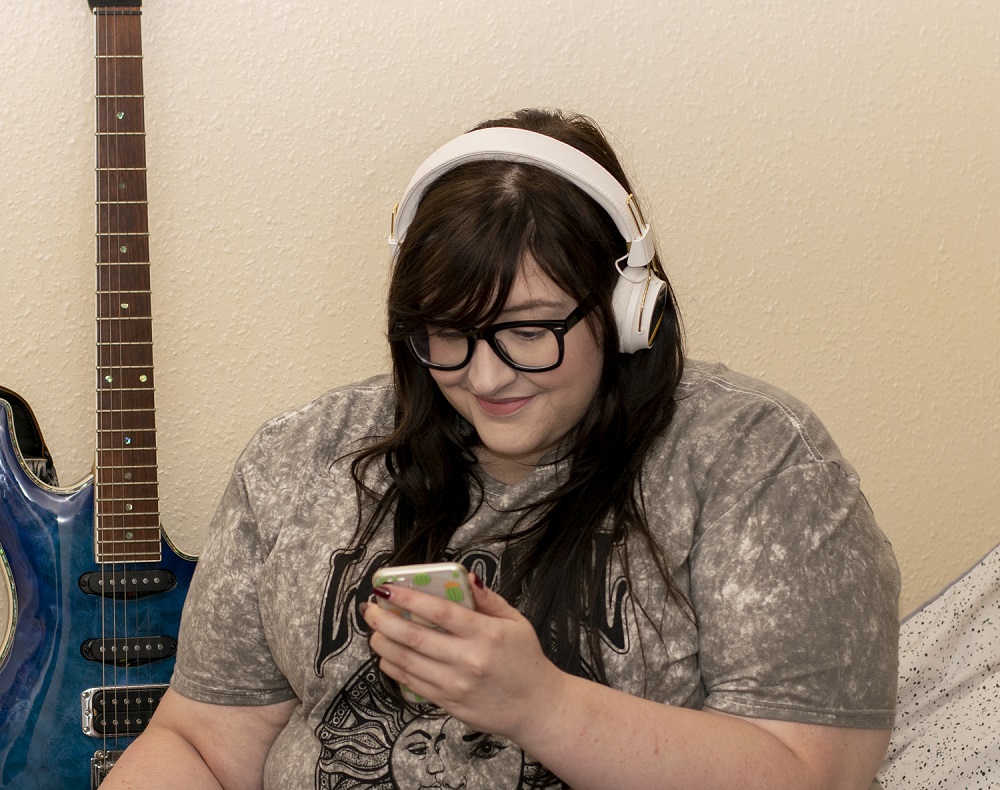To practice self-care is a phrase that has become quite common these last few years. With the importance of mental health becoming less of a taboo, not filtering feelings and being more open about our problems, self-care is one of those things that is completely subjective and a high priority. Disability blogger, and Motability Scheme customer, Sarah considers the importance of self care and explains how she practices it.
Self-care is synonymous with taking time for yourself; it’s about recognising that you need an evening, day, week to switch off and do something that helps you relax and/or takes your mind away from your everyday norm. There’s no right or wrong way to practice self-care and there’s absolutely no time-frame or limit on how often you can do it. The main thing is that you give yourself a break sometimes and just slow down; but then again, if your idea of self-care is going for a run, then maybe don’t slow down, speed up.
Ever felt like you need a pause button for your life? I know I do. I just want the world to stop spinning and take a little break to recuperate and then come back to it with fresh eyes and a clearer mind. You are protecting your well-being and your health when practicing self-care. In doing so, you are producing positive feelings which lead to happiness, confidence and increased self-esteem. Being proactive with self-care is so important for your mental health as it can massively reduce stress, improve your sleep pattern, help with productivity and promote healthy relationships.
Let’s not mess around, life is stressful. No matter what your situation is, whether you’re in a job you love, retired or don’t work due to your disability; life is hard. Add an illness on top of that and it can become overwhelming. That’s when self-care is beneficial; when you’re stressed, when you’re sad, when you’re getting over a flare-up, whenever you need a bit of ‘me time’.
The way I practice self-care is nothing revolutionary and I do it at least once a week as I find that it is a good way to disengage my overactive brain and actually relax, (something I struggle to do). My most often self-care regime involves a little pamper session; I light a candle, put on some calming music, pop on a face mask and lie in bed. If my partner is around, he gives me a hand massage as I find that really relaxing and it helps my arthritic fingers but if he isn’t, I do some progressive muscle relaxation (PMR).
PMR helps reduce stress and anxiety but also decreases muscle tension, lowers the blood pressure and is meant to help with fatigue. As I feel the tension leaving my body immediately there is a great sense of satisfaction and relief. It is such an easy technique to learn and extremely effective. Also, because I am focusing on clenching and releasing the tension, my mind does not revert back to whatever was bothering me because I am concentrating on performing the technique correctly.
Another way I practice self-care is what I call ‘my concert’. I absolutely love to sing; one of my favourite things is driving and singing loudly along with the radio, so I do this but at home. I get song lyrics up on my phone, play music and sing along. It’s such a simple activity but I absolutely love it and it makes me feel happy and positive.
Another favourite self-care technique involves clothes and makeup (shock, horror). As I am quite active on Instagram, I love putting on a new outfit and having a photo-shoot with my partner as my photographer. It makes me feel really confident and boosts my self-esteem. I do, also, love being behind the camera and taking endless amounts of photographs of my dogs as they’re adorable and I can never have too many puppy pictures.
There are so many different ways to practice self-care and what works for me might not work for you. Identify what you love to do, what helps clear your mind and makes you feel good, and go from there. Some examples are: walking, meditating, reading, writing, calling a friend, exercising, dancing, painting, playing an instrument, taking a long bath.
Whatever activity you do deliberately that improves your mood, do it more often. Take more time for you. You need looking after, too.
Read more from Sarah at www.fromsarahlex.com
Related Articles
Don’t let anxiety keep you from driving
Woodland walks good for mind and body, studies show
![]()






